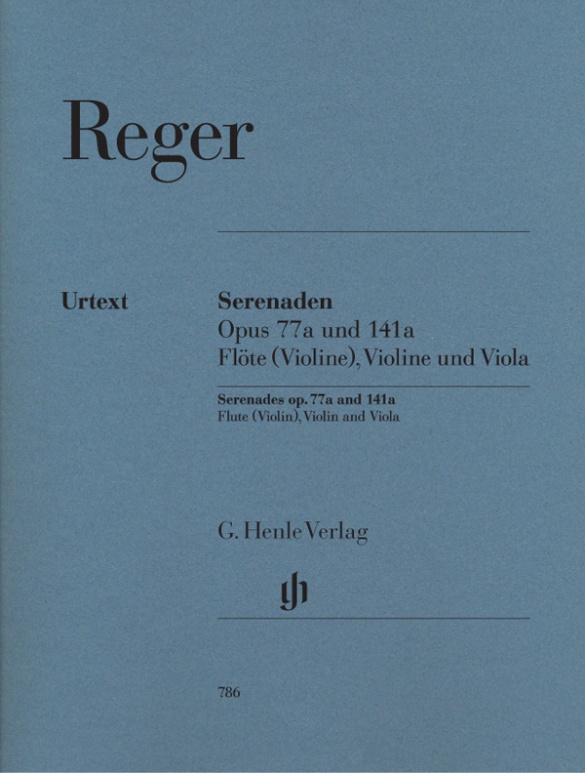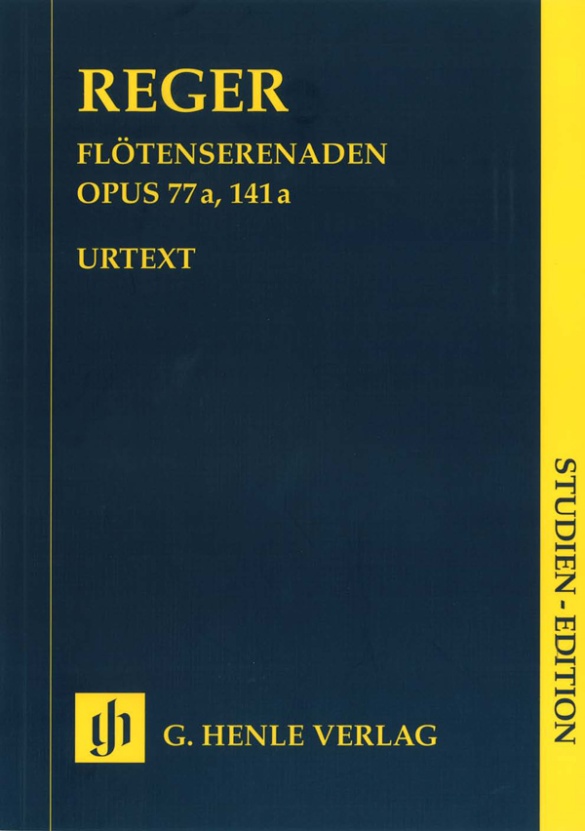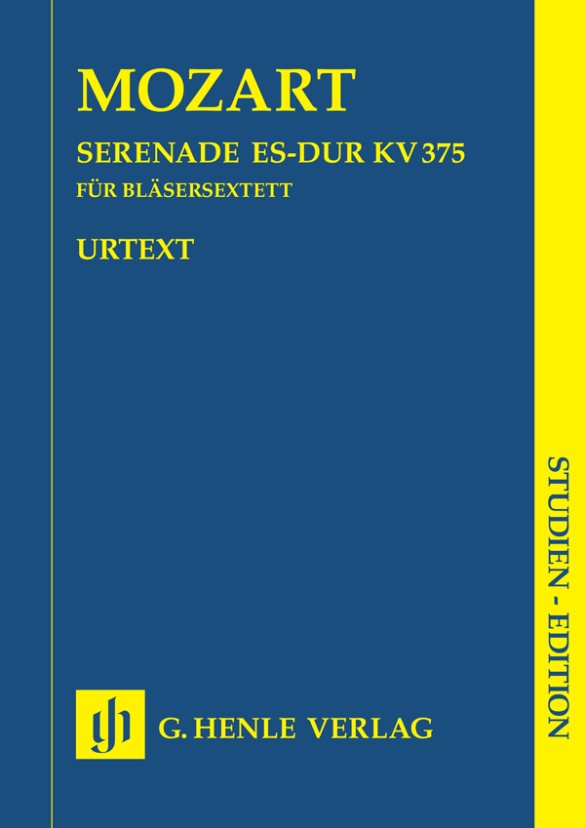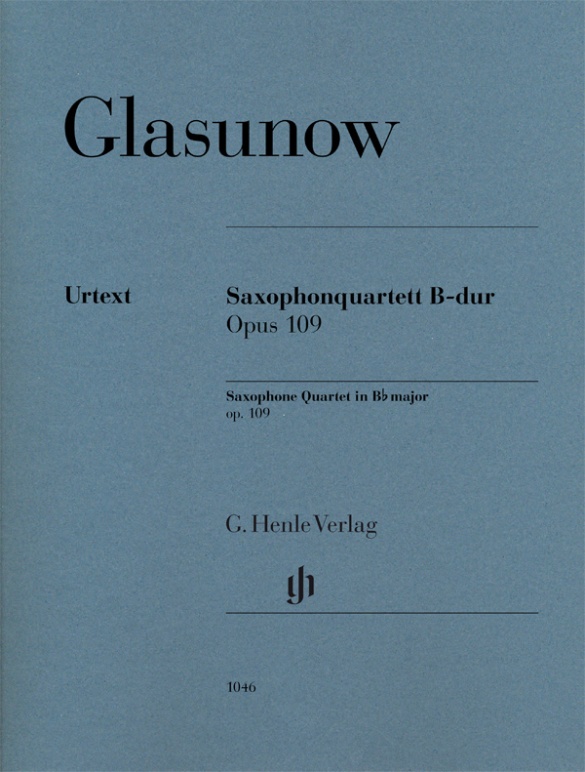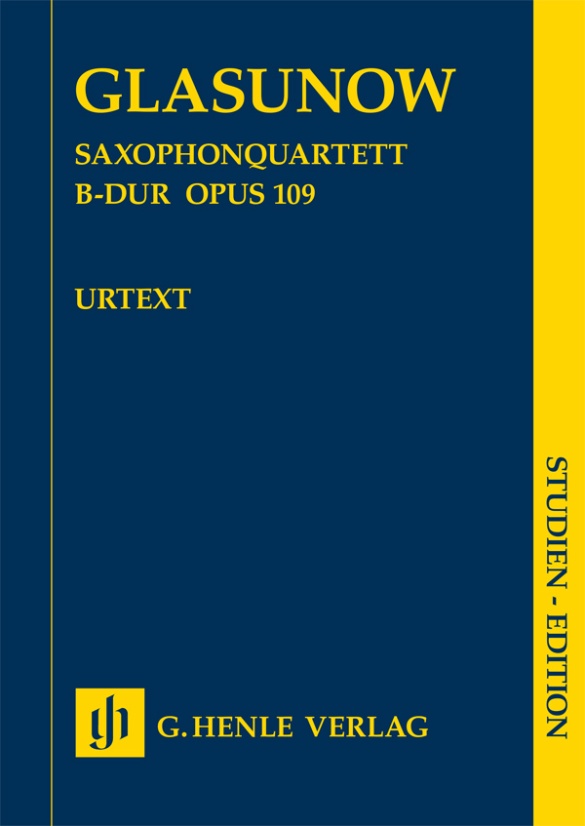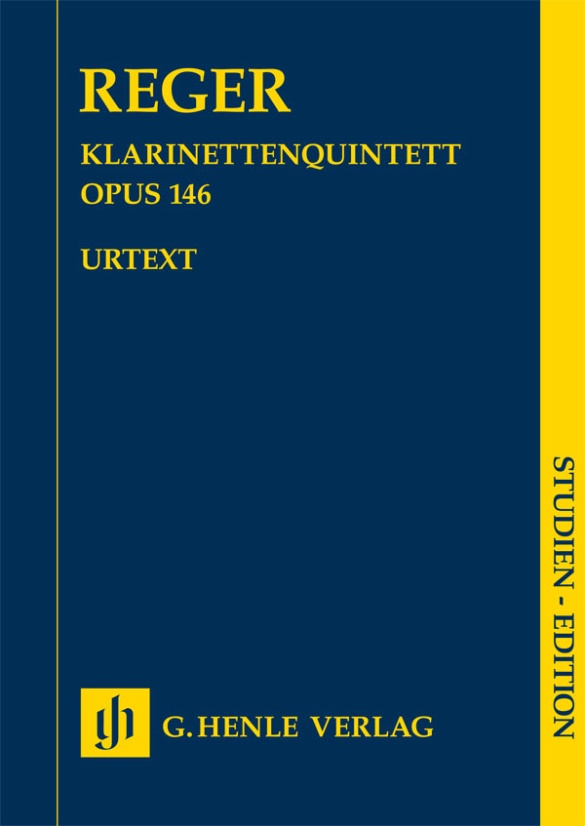

Max Reger
Clarinet Quintet in A major op. 146
With his clarinet quintet, begun in 1915, Reger was remembering his role models Mozart and Brahms, whose works in this genre he particularly admired. This melancholic quintet that is worked through in a strictly motivic way was to be Reger’s last opus. Shortly after he had sent it to his publisher, he died of heart attack in May 1916. The quintet was to become his swan song, first performed at a memorial for the composer on 6 November 1916. Almost one hundred years later, we are now publishing it for the first time in an Urtext edition, edited by the Reger scholar Michael Kube.
Content/Details
Exclusively in the Henle Library APP
Fingerings by: Armida Quartet
About the Composer
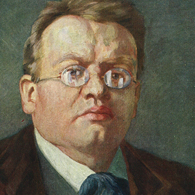
Max Reger
Late-Romantic composer who combines a chromatic tonal language with Baroque and Classical forms, thus anticipating 1920s neoclassicism.
| 1873 | Born in Brand (Upper Palatinate) on March 19, the son of a teacher. First piano lessons from his mother. |
| 1888 | After a visit to Bayreuth (for Meistersinger and Parsifal), decides on a career in music. |
| 1890–93 | Studies with Hugo Riemann at the conservatory in Wiesbaden, composes chamber works. Thereafter he endeavors to publish his own works as a freelance composer, albeit with multiple failures. |
| 1898 | Return to his parents’ home in Weiden. Composition of organ works: choral fantasies, “Fantasy and Fugue on B-A-C-H,” Op. 46 (1900); Symphonic Fantasy and Fugue (“Inferno”), Op. 57. |
| 1901–07 | Living in Munich. |
| 1903 | Publication of his “On the Theory of Modulation,” causing Riemann to feel attacked because Reger espouses a different understanding of the role of chromatics. “Variations and Fugue on an Original Theme,” Op. 73. |
| 1904 | Breakthrough with his first performance for the Allgemeine Deutsche Musikverein (General German Music Association). First volume of his “Simple Songs” for voice and piano, Op. 76; String Quartet in D minor, Op. 74, one of the most significant works in that genre at the beginning of the century. |
| From 1905 | Instructor at Munich’s Academy of Music. “Sinfonietta” in A major, Op. 90. |
| 1907–11 | Music director and professor of composition at the University of Leipzig. Orchestral work “Variations and Fugue on a Theme by Hiller,” Op. 100. |
| 1909 | “The 100th Psalm,” Op. 106, his most popular choral work. |
| 1911–14 | Director of the royal court orchestra of Saxe-Meiningen. |
| 1912 | “Concerto in the Old Style,” Op. 123. Orchestral song “An die Hoffnung” (“To Hope”), Op. 124. |
| 1913 | “Four Tone Poems after A. Böcklin” for large orchestra, Op. 128; “A Ballet Suite,” Op. 130. |
| 1914 | “Variations and Fugue on a Theme by Mozart,” Op. 132 |
| 1915 | He resides in Jena. Late compositions. |
| 1916 | Death in Leipzig on May 11. |
About the Authors

Michael Kube (Editor)
Dr. Michael Kube, born in 1968 in Kiel, studied musicology (with Friedhelm Krummacher and Heinrich W. Schwab), the history of art and ethnology at the Christian-Albrechts-Universität zu Kiel. Since 1998 he has been a research associate at the New Schubert Edition (Tübingen) and since autumn 2002 also a member of the editorial board.
Kube is on the panels of different juries and music prizes, and is also a member of the Committee for work evaluation (Werkprüfungsausschuss) of VG Music Edition. His research interests include music for keyboard instruments around 1700, 19th century chamber music, early 20th century music history, as well as Scandinavian music history.
Product Safety Informations (GPSR)

G. Henle Verlag
Here you can find the information about the manufacturer of the product.G. Henle Verlag e.K.
Forstenrieder Allee 122
81476 München
Germany
info@henle.de
www.henle.com
Alle diese Werke liegen nun im G. Henle Verlag in gewohnt ausgezeichneten Urtext-Ausgaben vor, die insbesondere bei den Sonaten eine echte Bereicherung und Verbesserung im Vergleich zu bisherigen Editionen bedeuten (...). Endlich eine Ausgabe mit Taktzahlen! Die Lesbarkeit des so undurchdringlichen Klavierparts hat durch mehr Großzügigkeit entscheidend gewonnen, und auch die Klarinettenstimme stellt sich freundlicher, übersichtlicher und mit mehr Raum für Eintragungen dar.
Das Liebhaberorchester, 2016recommendations
autogenerated_cross_selling
Further editions of this title
Further editions of this title


